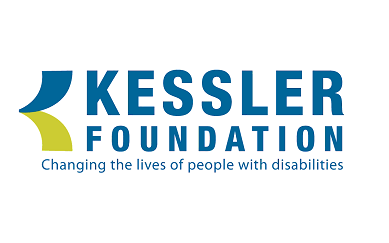Kessler Foundation and Motek partner to develop new rehab treatments
News
Researchers will investigate virtual reality-based interventions to improve cognitive and motor deficits in individuals with disabilities.
Kessler Foundation, a major nonprofit organisation in the field of disability, has partnered with Motek to develop new treatments to improve cognitive and motor impairments in individuals with disabilities.
Mobility deficits due to disease, trauma, or ageing, adversely affect a person’s quality of life. Specifically, the inability to adjust one’s gait to one’s environment – such as to manoeuver a doorstep, puddle of water or other obstacles – leads to increased risk of falling. Using a VR-based device called the C-Mill, investigators at Kessler Foundation are exploring interventions to improve disabling deficits in individuals with multiple sclerosis, spinal cord injury, cerebral palsy, and stroke. The C-Mill is a state-of-the-art treadmill that trains the user in obstacle avoidance and influences gait pattern by projecting virtual cues on a safe walking surface.
“The flexibility of the C-Mill allows researchers to program for specific environments, enabling better training and evaluation of gait pattern and gait adaptability,” said Guang Yue, PhD, director of Human Performance and Engineering Research at Kessler Foundation. “New technologies such as C-Mill enable researchers to develop universal standards for measuring and improving mobility. This exciting collaboration advances our mission to improve mobility, independence and quality of life for individuals with disabilities caused by a range of neurological conditions.”
Investigators will use advanced mobile brain imaging technologies such as high-density wireless EEG and functional near-infrared spectroscopy (fNIR or fNIRS) to monitor brain signals controlling walking activities on the C-Mill and/or magnetic resonance imaging (MRI) at the Rocco Ortenzio Neuroimaging Center at Kessler Foundation to examine brain structural and functional changes underlying cognitive and motor improvements in individuals following interventions using the C-Mill technology. The findings of these studies may help reduce loss of independence and improve daily functioning in people with disabilities by providing targeted treatment and identifying critical biomarkers promoting post-intervention functional gains in learning and memory, fatigue, gait and balance.
“Motek gives clinicians and researchers the tools they need to provide dynamic, high-quality technology solutions that can be customised to meet the patient’s needs,” said Frans Steenbrink, PhD, Head of Clinical Applications & Research at Motek. “With this strategic partnership, Motek and Kessler Foundation aim to facilitate both the integration of our technology in clinical settings and the accommodation of different patient populations. Together, we will create a strong scientific network that will push evidence-based clinical research into the underlying mechanisms of impaired gait and balance control. Furthermore, we hope to extend this strategic partnership with Kessler Foundation to the entire DIH Group, laying the groundwork for numerous future innovations.”
About Motek
Motek is the global leader in virtual reality and robotics research and rehabilitation, combining almost 20 years of experience in high-level technologies. We excel in building the most versatile devices, integrating latest VR, motion capture and multiple sensory technologies and ensuring real-time feedback, data quality and synchronisation. Our treadmill and balance platform-based systems, arm movement tools or body weight supports are easily interconnected through our in-house software platform. From global knowledge exchange to unique research set-ups: with our all-round support package, we are the perfect partner for every stage of your research on human movement. Motek is a proud partner of DIH International and Hocoma and is part of the DIH Rehabilitation Division.
About Human Performance & Engineering Research at Kessler Foundation
Under the leadership of Guang Yue, PhD, six areas of specialized research are headed by experts in biomechanics, bioengineering, movement analysis, robotics, neurophysiology and neuroimaging. All areas of specialized research contribute to the common goal to improve mobility and motor function so individuals with disabilities can participate fully in school, work, and community activities. Their efforts fuel innovative approaches to address disabling conditions, including brain injury, spinal cord injury, multiple sclerosis, cerebral palsy, arthritis and cancer.
Research is funded by the National Institute on Disability, Independent Living & Rehabilitation Research, National Institutes of Health, Department of Defense, Reeve Foundation, New Jersey Commission on Spinal Cord Injury Research, Craig H. Neilsen Foundation, and Children’s Specialized Hospital.
About Kessler Foundation
Kessler Foundation, a major nonprofit organisation in the field of disability, is a global leader in rehabilitation research that seeks to improve cognition, mobility and long-term outcomes, including employment, for people with neurological disabilities caused by diseases and injuries of the brain and spinal cord. Kessler Foundation leads the nation in funding innovative programs that expand opportunities for employment for people with disabilities.
Learn more by visiting www.KesslerFoundation.org.

